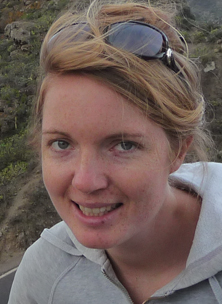zurück zur Übersicht

Carolin Wendling

Forschungsaktivitäten
Evolutionary feedback in a tripartite species interaction

In the marine environment animals are constantly subjected to a cocktail of microbes of which some pose a major threat as they can establish severe infections. The propensity of a bacterium to shift its virulence is often initiated by a third biological player i.e. bacteriophages that integrate into the genome of mutualistic bacteria and turn them into severe diseases (i.e. lysogenic conversion). However, interactions between more than two players are complex and have largely been neglected in empirical host-parasite research, and thus little is known about the evolutionary consequences of such altered interactions. I suggest studying a tripartite interaction using a well-established model system consisting of pipefish, Vibrio and their temperate phages. Looking at dual interactions, host local adaptation was discovered between pipefish and Vibrio bacteria. In a cross-infection matrix of Vibrio and temperate phages two distinct groups of phages, i.e. generalists (broad host range) and specialists (narrow host range) were found. I now propose to integrate these findings and combine both dual systems into a tripartite interaction. To achieve this aim, I will use experimental evolution to let generalist phages evolve into specialists and vice versa. Next, I want to identify genomic changes during host range evolution by means of whole genome sequencing on both bacteria and phages. I will then determine the evolutionary feedback of such altered species interactions to test two hypotheses: (1) generalist phages will increase Vibrio virulence due to lysogenic conversion which will ultimately result in an increased disease risk for pipefish and (2) such altered species interactions at the phage-bacteria level will disrupt local host adaptation at the bacteria-pipefish level.